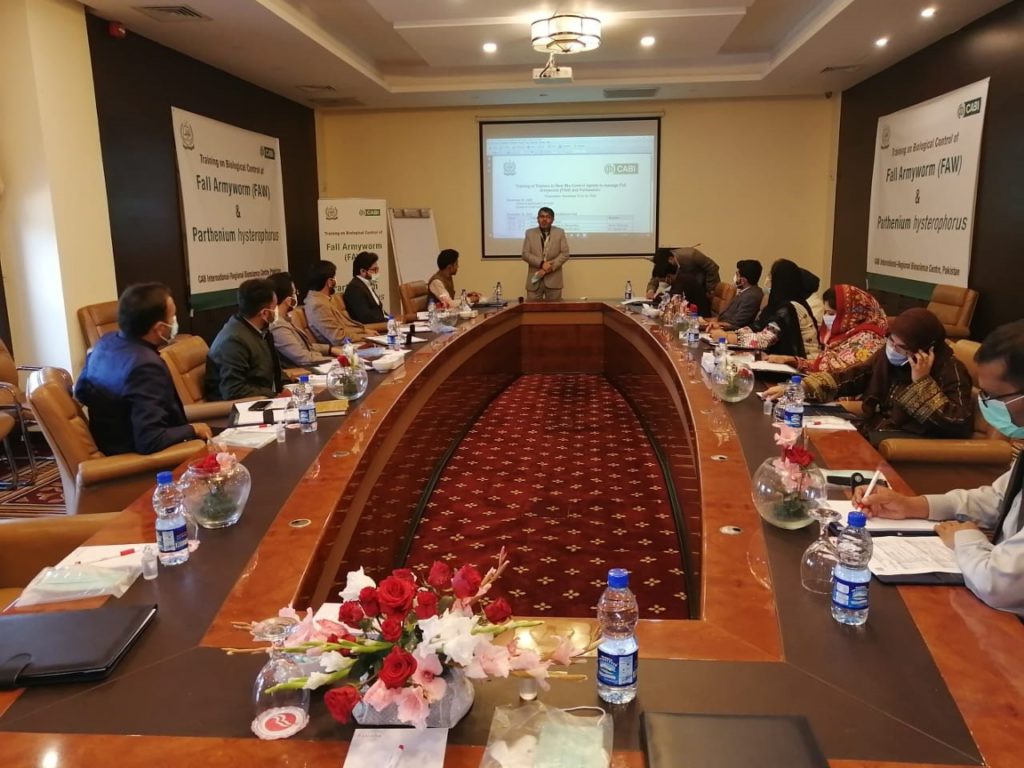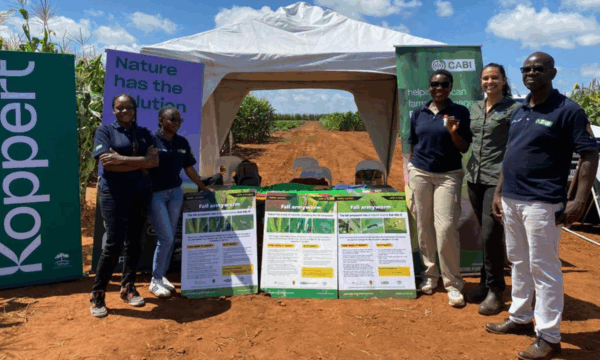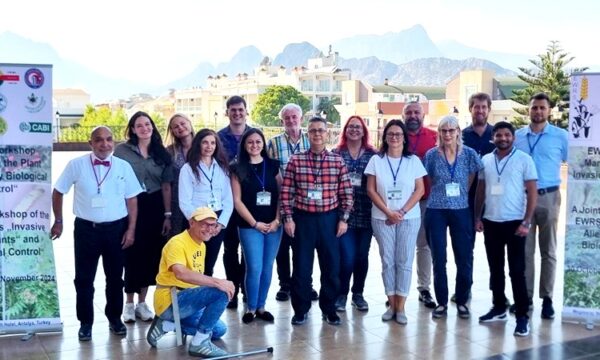
Under its Action on Invasives (AoI) programme CABI in Pakistan organized two training sessions for rearing biocontrol agents to manage fall armyworm (Spodoptera frugiperda) and parthenium (Parthenium hysterophorus) in December, 2020.
Participants of the training visited the Biocontrol Control laboratory as well as Quarantine Lab at the CABI-RBC office in Rawalpindi where they learnt practical skills on the rearing methodology of egg and larval parasitoids of fall armyworm and the stem boring weevil of parthenium.
CABI aims to build the capacity of agriculture departments to address the issue of invasive species and to raise awareness among communities for better management practices of invasive species.
Officers and lab assistants from eleven biocontrol labs in Punjab and five biocontrol labs of Khyber Pakhtunkhwa provinces attended the training. In the opening session, participants were briefed on the scope and objectives of AoI programme. They also learnt about the activities and achievements of the programme over the last three years.
Mr. M. Hamza, Project Assistant, AoI, CABI gave a detailed presentation on the identification and biology of fall armyworm and partheniumand highlighted the negative impacts of these invasive species.


Mr. Abdul Rehman, Deputy Director Programmes, CABI, comprehensively explained the biology and rearing methodology of fall armyworm plus its indigenously collected egg and larval parasitoid – Telenomus remus. While discussing with participants, he elaborated on the rearing techniques of fall armyworm on both natural and artificial diets. Mr Rehman also shared the detailed formulation of the artificial diet as well as modifications that could be made using locally available ingredients.
The participants were also trained on the classical biocontrol of parthenium, using the stem boring weevil, Listronotus setosipennis, at CABI’s quarantine lab and learnt about the basic host specificity tests of this biocontrol agent

The trainees then had a chance to put their learning into practice by preparing an artificial diet for fall armyworm and culturing of stem boring weevil for parthenium.
After the training, one of the participants said that the capacity building training was need of the hour and helpful to for them to learn new interventions in the field of invasive species and its management.
At the end of training, participants received training material for future learning and certificates.

Find out more on CABI’s open access Invasive Species Compendium:
You can also discover more on the biocontrol of fall armyworm on CABI’s Fall Armyworm Research Collaboration Portal
Related News & Blogs
CABI-led study suggests women in Pakistan need greater access to information on parthenium weed
A new CABI-led study investigated smallholder farmers’ knowledge, attitudes and practices towards parthenium and biological control in Pakistan. The study brings attention to important gendered aspects of parthenium impact. It also highlights smallhold…
27 June 2025




